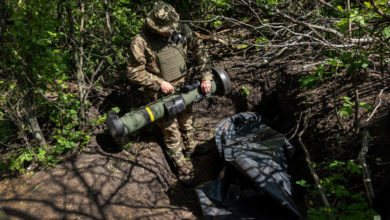Why Airlines Overbook Flights and How to Negotiate a Deal

No traveler wants to be bumped from a flight—but what if you were offered $1,500? How about $10,000?
Some people find the decision easy. After being asked to leave their seats on a Delta flight that was overbooked from Grand Rapids Mich. to Minneapolis Minn. in June, eight passengers walked away with $10,000 more. Some may call these travelers lucky—or opportunistic—but compensation for overbooking is actually a common practice. Travelers at New York’s LaGuardia Airport were offered up to $3,000 this summer to deplane their flight to West Palm Beach, Fla., and it’s being reported at airports all across the world.
While disruptions to air travel aren’t new, this year has seen a rise in the money that airlines have given affected passengers. By law, the compensation rate typically varies between $775 and $1,550 depending on the price of the traveler’s ticket and length of the delay, though some airlines are choosing to go well beyond these baseline figures to avoid PR nightmares.
Continue reading: Air Travel Is Chaos Right Now. Here are some things to know before you fly
Many travelers are angry at the practice of booking too many flights, despite its lucrative rewards. Google searches for “expected flights delays tomorrow” increased more than 400% in early June, and travelers have vented on social media about missing connecting flights or scheduled engagements because of overbooking.
Here’s what you need to know about the contentious airline practice and how to navigate it.
Why does an airline overbook its flights?
Profit maximization is what it comes down to. Airlines want to make sure that every flight is as full as possible in case travelers cancel their tickets at the last minute or don’t show up—a common occurrence for airlines, since weather delays often force travelers to miss connecting flights. To recover their costs, airlines oversell flights.
But it doesn’t always work out. Between January and March 2022, 7,143 people who held confirmed reservations were involuntarily denied boarding from a flight because of overselling—up from 742 over the same period in 2021 and 1,576 in 2020. The latest Air Travel Consumer Report shows that 34% flew with Frontier Airlines, 32% with Southwest Airlines, and 14% with American Airlines. The least reported airlines were Delta Air Lines and United Airlines as well as Alaska Airlines, Alaska Airlines, JetBlue Airways, and United Airlines.
“Airlines make their best educated guess at how many people they think are going to show up for that flight based on historical standards,” Scott Keyes, the founder of Scott’s Cheap Flights, tells TIME. “It can end up backfiring if they’re wrong and aren’t able to convince volunteers to take the compensation they’re offering to take a later flight.”
Continue reading: Air Travel Nightmares Aren’t Going Away Soon. Here’s Why
Overbooking domestic and international flights has been a common practice by airlines for many years. The issue gained attention in April 2017, when a Kentucky doctor was knocked unconscious—bleeding—and violently dragged off a United Airlines flight that was overbooked after he was randomly selected to give up his seat but refused to do so because he needed to see patients the following day. United agreed to pay $140 Million in settlement fees after the video was made public.
This backlash caused the industry in air travel to change its overselling strategy. They now offer travelers more money, which helps to keep negative publicity away. But it hasn’t always worked out smoothly. One person wroteSouthwest Airlines posted on Twitter that their family had to cancel due to overbooking. The airline only offered them a $150 voucher as compensation. TIME was also told by another customer that American Airlines only gave them a $150 coupon, despite the fact they were promised $825 credit for giving up their seats on an overbooked flight to Fort Worth. New York City. “I understand being 21 is grown but I was also by myself and that can be scary at times,” says Ka’nya Grace, who was placed on an alternative flight that arrived at her destination five hours late. “I felt like I was being played with and lied to by American Airlines.”
Airlines typically first ask travelers who aren’t in a hurry to give up their seats voluntarily in exchange for compensation, but if they are still overbooked, airlines can deny a passenger a seat on an aircraft based on criteria that it establishes, such as the passenger’s check-in time, the fare paid by the passenger, or the passenger’s frequent flyer status, according to Tomasz Pawliszyn, the CEO of AirHelp, a for-profit air travel rights advocacy company that helps people submit legal claims to get properly compensated for overbooked or canceled flights. If you don’t want to be bumped, it is worth checking in before the flight.
How to get the highest compensation possible for an unbooked airline flight
Airlines are required by law to compensate travelers who don’t get to fly in the form of a check or cash, but the amount of money is largely discretionary. If your flight is overbooked and you’re willing to give up your seat, experts advise negotiating with airline staff to drive up your compensation package before accepting.
“Many times you can negotiate for things like a better flight, hotel vouchers, meal vouchers and lounge passes,” Keyes says. “A lot of people miss this when it comes to getting bumped from an airline, but it’s not a one way street. There’s a secret menu of options that airlines have at their disposal that they can offer you beyond money or credits.”
For instance, if you’re denied boarding, Keyes says to request airline staff make your replacement flight non-stop, or business class instead of economy, in addition to negotiating the money they offer. While not all airlines are able to accommodate your request, some might. “Like so many companies, airlines are profit-seeking corporations,” Keyes adds. “They’re not going to start out by offering $10,000. But when they’re desperate enough, they will.”
The minimum rate of compensation for U.S. Department of Transportation flights booked more than 2 hours after your original arrival time is set at $1,550. This is 400% of the cost of your one-way airfare, whichever is less. If your substitute transportation is scheduled to arrive at your destination between one and two hours after your original arrival time, the airline must pay you, at a minimum, $775 or an amount equal to 200% of your one-way fare—whichever is lower. If a traveler is bumped and gets substitute transport within an hour of their scheduled arrival time, they are not entitled to compensation.
More than 95% of Americans don’t know these laws, according to a recent survey from AirHelp. The number of travelers using AirHelp’s website is up over 50% compared to the last month, Pawliszyn tells TIME, and the number of customers seeking help filing compensation claims has doubled. “We see a significant increase in customers using our service,” he says.
Continue reading: The World’s Greatest Places of 2022
This law may be slightly different for travelers heading to Europe in the summer. For travelers who flew from the E.U., there are some exceptions. You may be eligible to receive up to $700 in compensation for flight delays, such as cancellations and denied boarding because of overbooking.
“It’s a bit surprising when you think of it from a purely financial standpoint—why would airlines be offering $5,000 in compensation when under federal law, they’re only required to offer $1,550,” Keyes says. “But when you look at it from a PR perspective, the answer is very clear, because bumping people against their will makes them very upset as it should and can result in some pretty disastrous social media fodder.”
Here are more must-read stories from TIME





